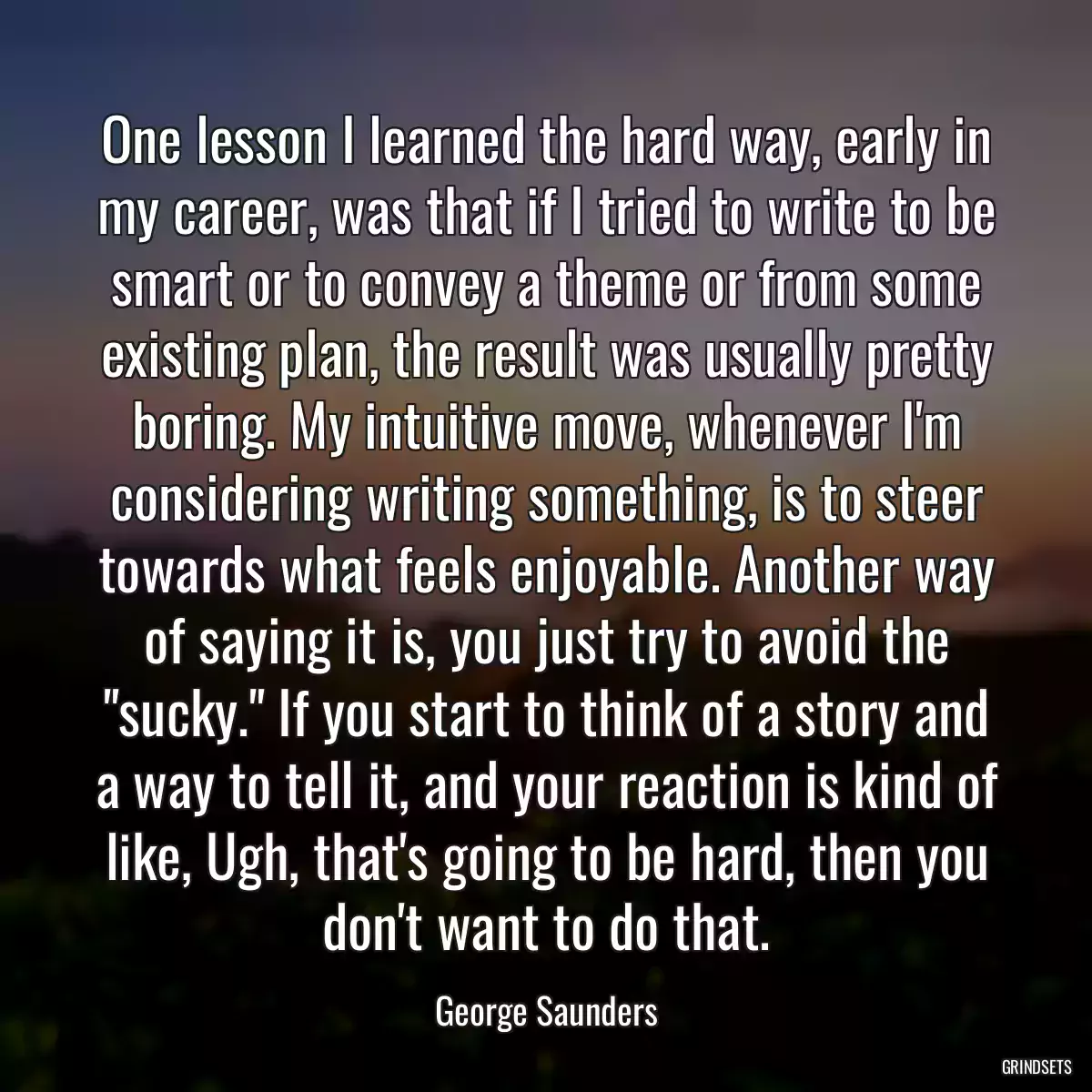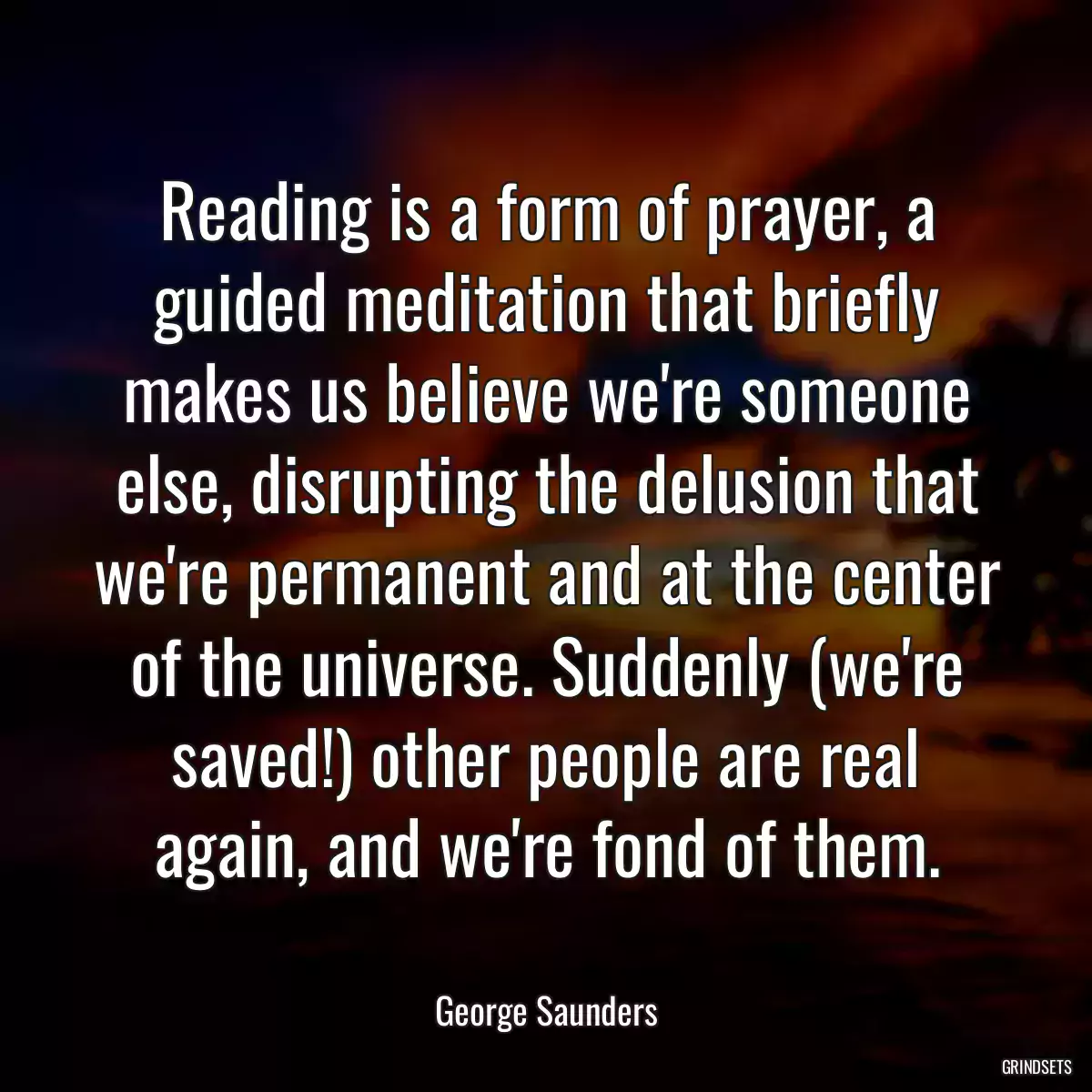
One lesson I learned the hard way, early in my career, was that if I tried to write to be smart or to convey a theme or from some existing plan, the result was usually pretty boring. My intuitive move, whenever I'm considering writing something, is to steer towards what feels enjoyable. Another way of saying it is, you just try to avoid the "sucky." If you start to think of a story and a way to tell it, and your reaction is kind of like, Ugh, that's going to be hard, then you don't want to do that.
